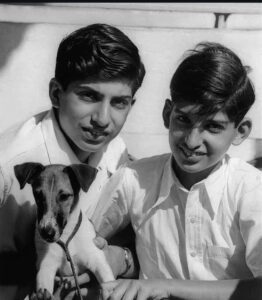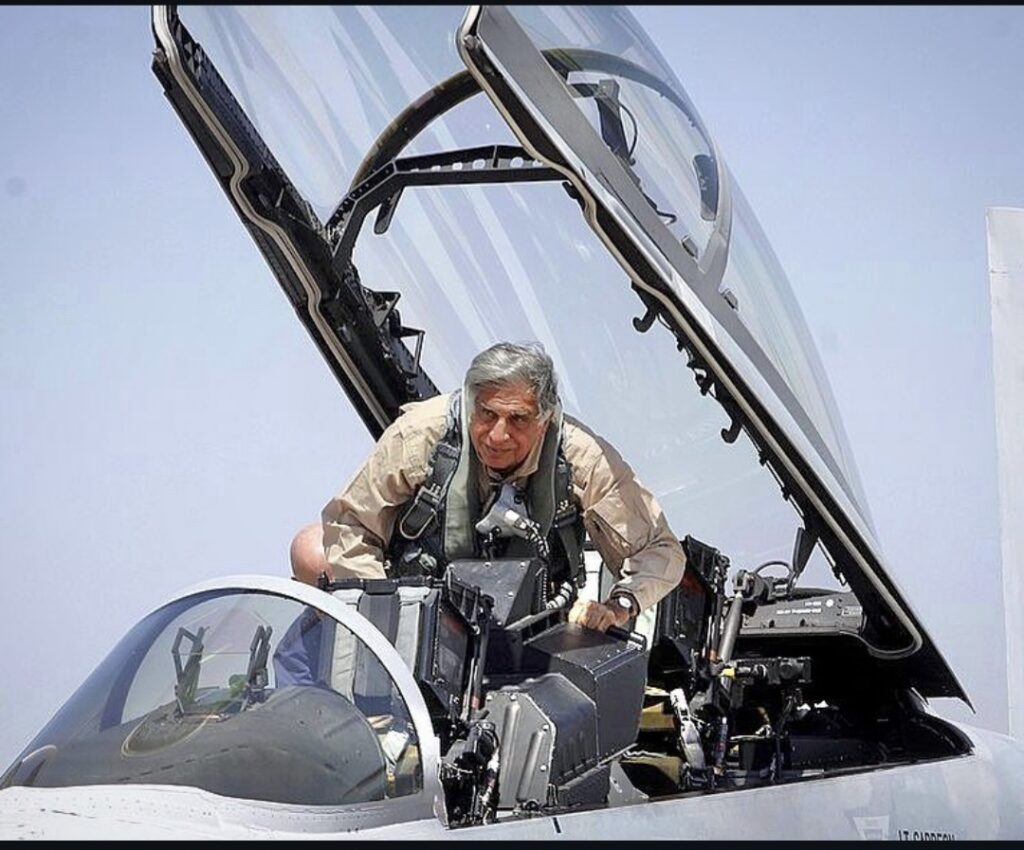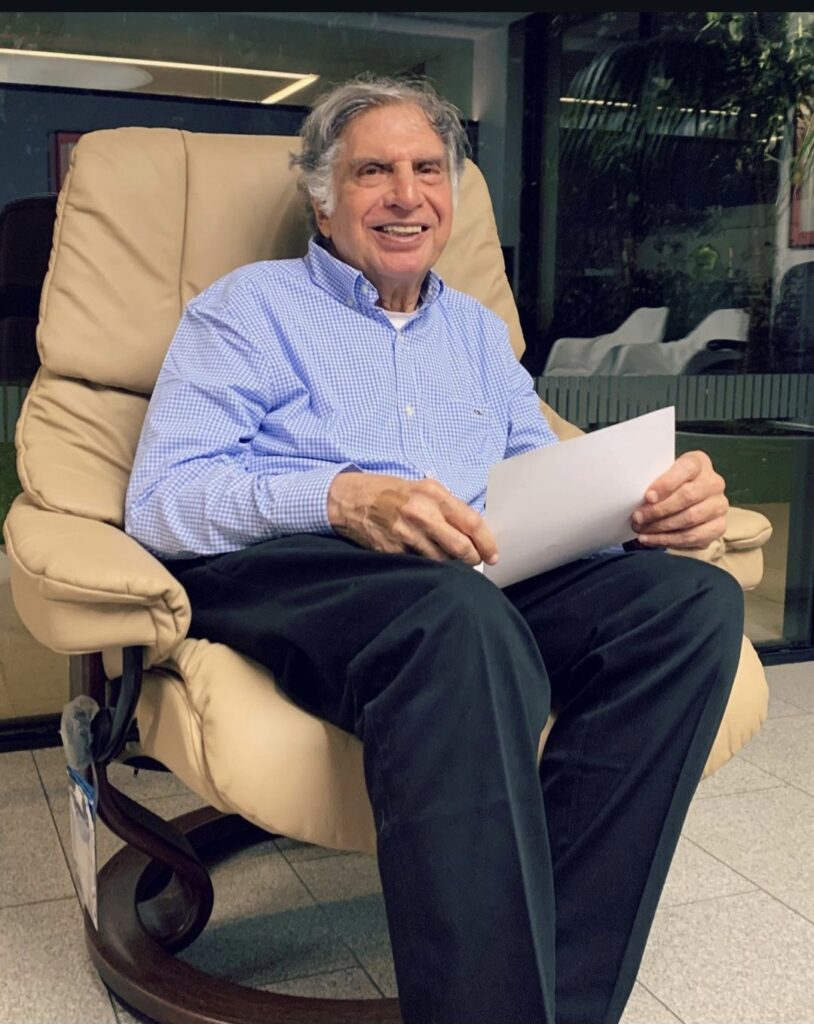Introduction

Ratan Naval TaTA, born on December 28, 1937, was not just a name but a symbol of visionary leadership, ethical business practices, and philanthropy. The former chairman of Tata Sons, he passed away on the night of October 9, 2024, at the age of 86 due to age-related medical conditions. Ratan Tata’s influence transcended the boardroom, touching various sectors of Indian society and global business. With an estimated net worth of ₹3,800 crore ($456 million), his life journey reflects a unique blend of business acumen and social responsibility.
This blog explores his legacy, his personal life, the growth of the Tata Group under his leadership, and the lasting impact of his philanthropy on India and the world.

Ratan Tata was born into the prestigious Tata family, which had already established itself as a leader in India’s industrial landscape. Raised primarily by his grandmother, Navajbai Tata, in the family’s estate, Tata Palace, he grew up in Mumbai alongside his younger brother, Jimmy Tata. Despite his privileged upbringing, Ratan Tata’s values of humility and compassion were instilled in him early on.
He pursued a degree in architecture at Cornell University, USA, before returning to India to join the Tata Group in 1961. Little did the world know that he would go on to transform the conglomerate into one of India’s largest and most respected business empires.
Transforming Tata Sons: The Visionary Behind the Expansion
Ratan Tata took over the reins of Tata Sons in 1991, succeeding J.R.D. Tata. This period marked a turning point for the Tata Group, as Ratan Tata embarked on an ambitious journey of diversification and globalization. Under his leadership, Tata Group expanded into multiple sectors, including steel, automotive, software, power, and aviation.
One of the most notable milestones in Tata’s journey was the acquisition of international brands. In 2007, Tata Group purchased the UK-based steelmaker Corus Group for $12 billion, followed by the acquisition of Jaguar and Land Rover from Ford in 2008 for $2.3 billion. These high-profile deals not only bolstered Tata’s reputation on the global stage but also helped reverse India’s colonial past by acquiring iconic British assets.
Tata Motors also made headlines in 2009 when the company launched the Tata Nano, hailed as the “People’s Car.” Priced at ₹100,000 ($2,000), it was designed to offer safe, affordable transport for India’s middle and lower-income groups. Although the Nano faced commercial challenges, it was emblematic of Ratan Tata’s desire to innovate and cater to India’s growing middle class
Ratan Tata’s Influence on Indian Aviation

The Tata Group’s connection with aviation began long before Ratan Tata’s tenure, with the company launching India’s first airline in 1932, which later became Air India. Ratan Tata continued this legacy by reclaiming Air India from government ownership in 2021, a move that revived Tata Group’s role in commercial aviation.
In addition, Tata Group co-founded Vistara, a full-service airline in partnership with Singapore Airlines. This carrier has since merged with Air India, further consolidating Tata’s hold over India’s aviation industry.
Philanthropy: More Than Just Business
Ratan Tata was not just a business leader; he was a philanthropist at heart. Much of his wealth is held in the Tata Trusts, which control 66% of Tata Sons. The profits from Tata Sons are directed toward charitable initiatives in education, healthcare, and rural development, making a positive impact on millions of lives.
Tata’s philanthropic philosophy went beyond mere charity. He believed that businesses should act as agents of social good, and his contributions to national development reflect this. Under his guidance, Tata Trusts supported various initiatives, from building hospitals and schools to funding scientific research.
His humanitarian efforts were particularly evident after the 2008 Mumbai terror attacks, when the Taj Mahal Palace, a Tata-owned hotel, was one of the primary targets. Tata’s compassionate response to the tragedy—offering assistance to not just employees but also the victims’ families and even nearby street vendors—cemented his reputation as a leader who truly cared about the people.
Recognition and Awards

Throughout his life, Ratan Tata received numerous accolades for his business leadership and philanthropic contributions. Among the most notable were India’s prestigious civilian awards, the Padma Bhushan (2000) and Padma Vibhushan (2008). These honors reflect not only his business achievements but also his role in shaping the socio-economic landscape of India.
Internationally, Tata was recognized as a global thought leader. Business leaders like Sundar Pichai, CEO of Google, and Mukesh Ambani, chairman of Reliance Industries, often highlighted Tata’s ability to mentor and inspire.
Succession Planning and the Future of Tata Group

Ratan Tata never had children, which left the question of succession a significant topic of discussion. In 2017, N Chandrasekaran was appointed chairman of Tata Sons, following Ratan Tata’s retirement in 2012. However, the Tata family continues to play a role in the conglomerate’s leadership.
Noel Tata, Ratan Tata’s half-brother, is often considered a key figure in the group’s succession plan. Noel’s children—Maya, Neville, and Leah Tata—are also seen as potential heirs to the Tata legacy. While the Tata Group has a well-established leadership structure, the family’s influence continues to be felt across various divisions of the conglomerate.
As of 2024, Ratan Tata’s net worth is estimated at ₹3,800 crore ($456 million). Despite his wealth, Tata lived a simple and unpretentious life, dedicating much of his earnings to charitable causes. Unlike many billionaires, he did not focus on personal wealth accumulation. Instead, his fortune was tied up in the Tata Trusts, which are responsible for funding various social programs across India.
This model of integrating business success with social responsibility sets Ratan Tata apart from many of his contemporaries. His legacy is not measured solely in financial terms but in the profound positive impact he has had on society.
Ratan Tata’s passing marks the end of an era in Indian business, but his legacy will continue to inspire generations to come. His vision for the Tata Group was not just about growing the company but also about ensuring that business serves a broader social purpose. From expanding Tata’s global footprint to spearheading philanthropic initiatives, Tata’s life was a testament to the idea that businesses can—and should—do good.
As the world mourns the loss of Ratan Tata, his values of humility, ethics, and compassion will remain a guiding force for future business leaders. He leaves behind not just a global conglomerate but a legacy that will continue to shape India and the world for years to come.

